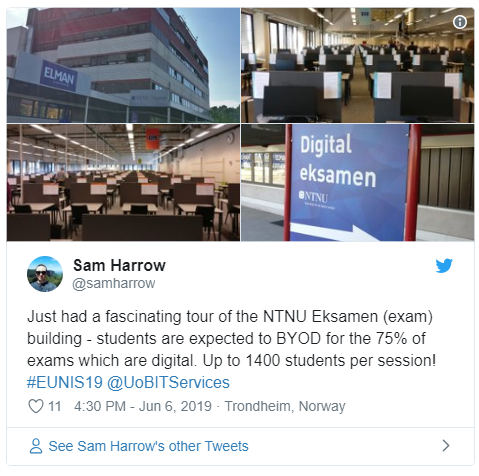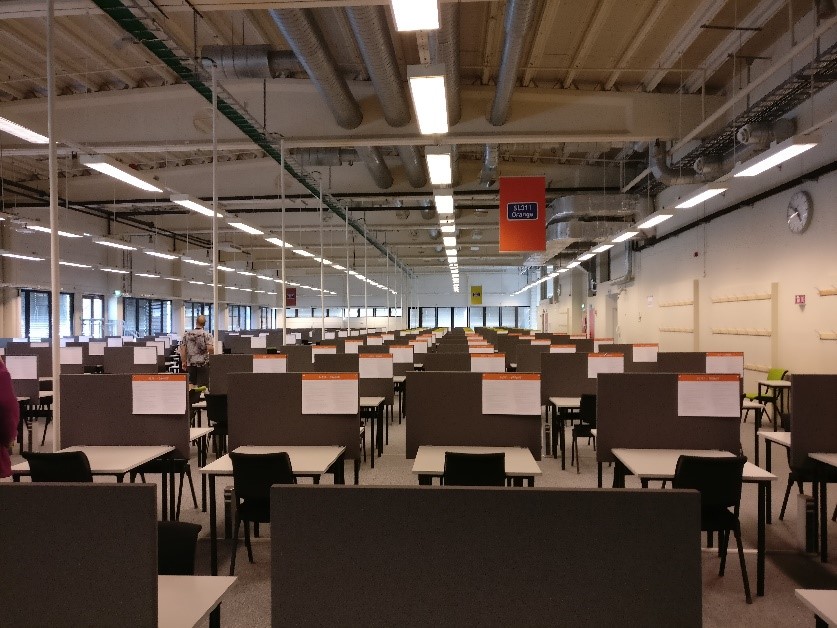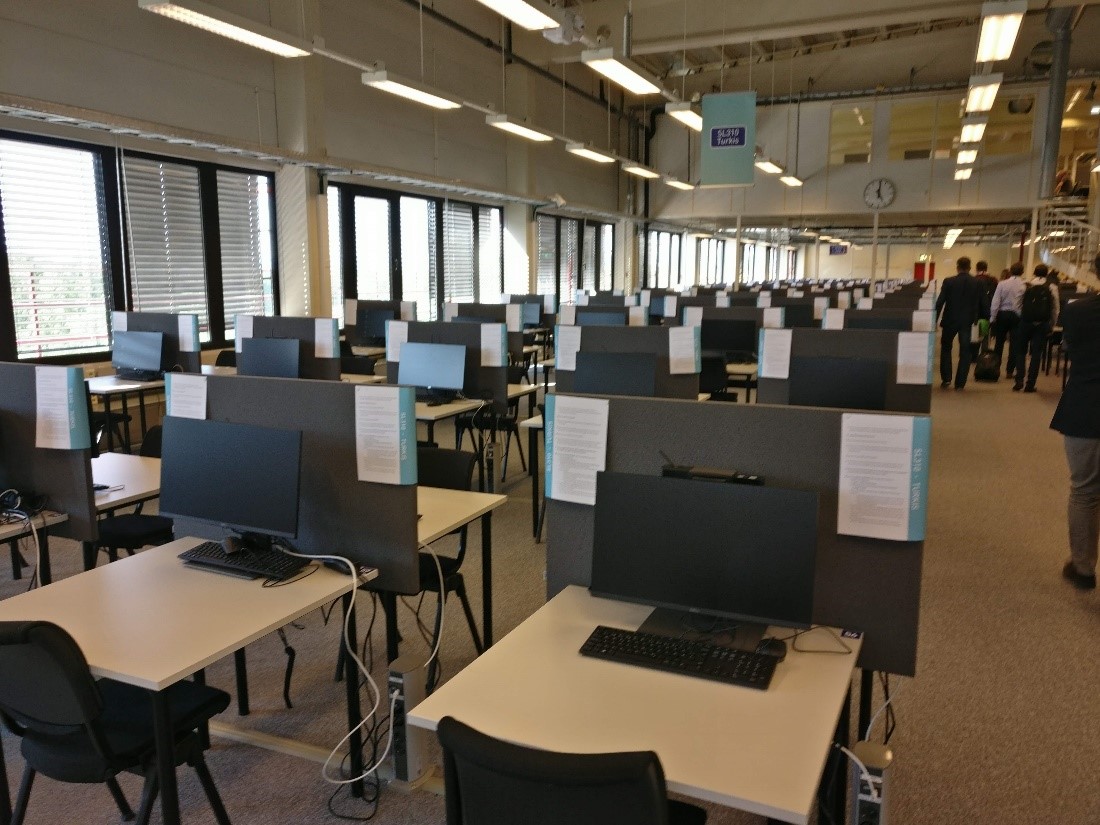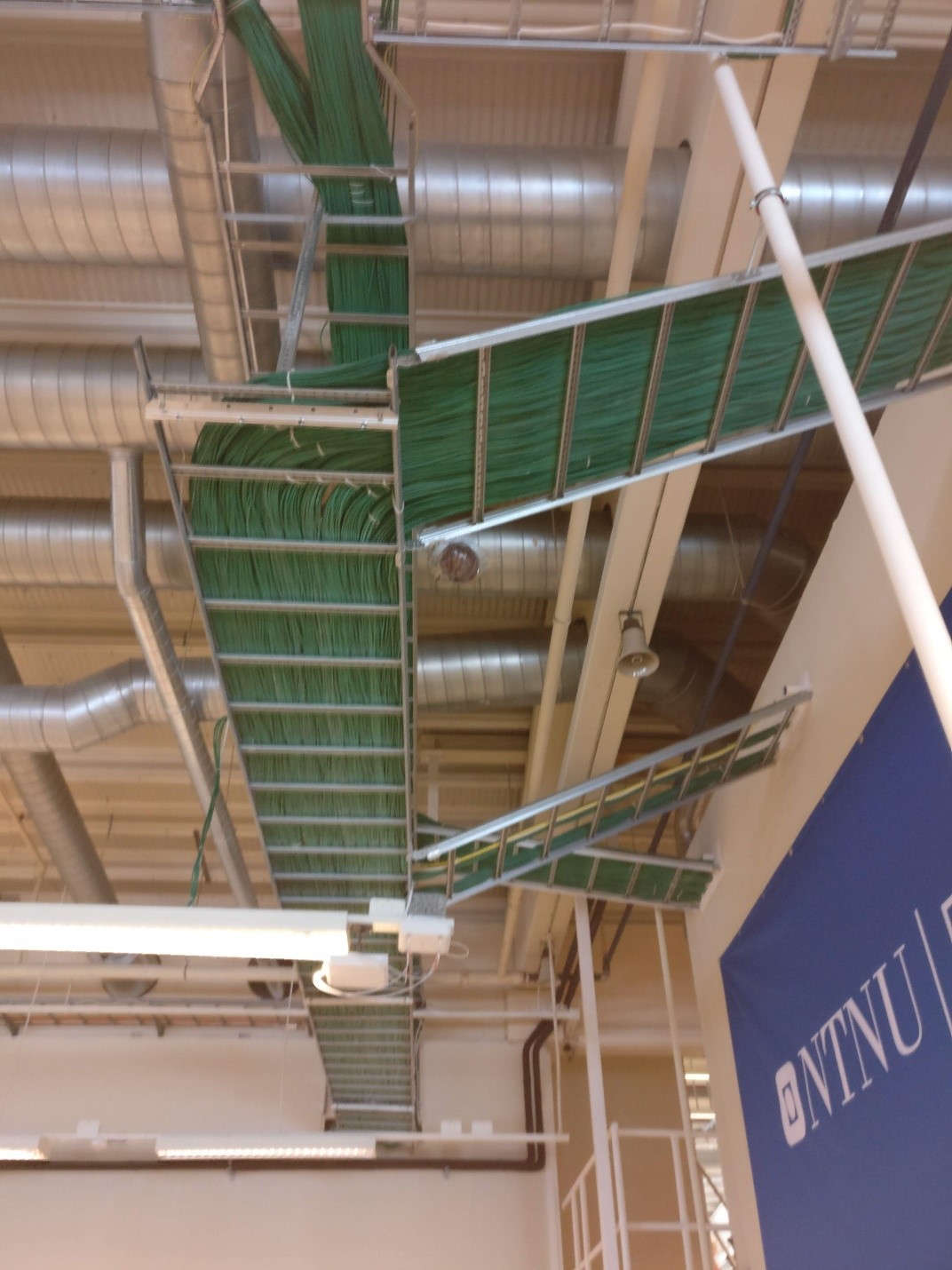This is one of a series of articles written after the EUNIS 2019 conference, which Sam Harrow attended through the ucisa Bursary Scheme.
One of the elective sessions on Day 2 of EUNIS 2019 was an opportunity to visit the intriguingly-titled “Exam Factory” at our host, NTNU (the Norwegian University of Science and Technology). Knowing that digital exams have been discussed at the University of Birmingham in the past, I thought that this would be a great opportunity to go along and find out more.
At NTNU, about 75% of exams are now taken digitally, with students predominantly using their own laptops, although some fixed PCs are available for exams requiring specialist software or configuration. Some exams are still paper based where the nature of the course requires it, and some digital exams still include questions where responses are marked on paper (e.g. where a drawing or a graph is required).
We hopped on a bus at the main campus for the 10 minute journey to the dedicated “Eksamen” building in the south of Trondheim (interestingly, the local bus company ensures there are extra services running during exam periods – a great example of city and university working together). The building can host 1460 concurrent exams over four floors.

Our tour started with a look at some of the kit the staff use to manage the exam process, including their pool of spare laptops and the scanning equipment used to capture paper-based responses to questions. Paper-based responses are marked with a unique code which links a specific student, question and exam, which is read programmatically.
We then went upstairs to one of the “big halls”, where the scale of the operation becomes immediately visible. A great deal of planning went into creating the exam space, including the positioning of signage and the provision of toilets inside the exam hall, removing the need for examiners to escort students in and out of the venue. The majority of desks have no fixed IT equipment, just power sockets and chairs.

Other areas have a number of PCs for more specialised exams.

From a technology perspective, a great deal of work took place to make the building future-proof and resilient; there are more than double the number of wireless access points a space like this would require, and two independent network links to the building with access points split across the two links. There are several kilometres of network cabling, to provide wired connections to each desk if required in the future.

Inspera are the provider of the digital exam solution to Norwegian universities; the tool covers both the central administration of exams and test-takers, and includes the “Safe Exam Browser” which is installed on student devices to prevent access to unauthorised materials and applications during exams. When a student is seated ready to take their exam they are provided a password which gives them access to the exam; invigilators have access to a portal which alerts them to any anomalies and any issues with student devices (e.g. if the network is lost).
I have more information about Inspera and the Safe Exam Browser – feel free to get in touch if you have questions or would like to know more.
